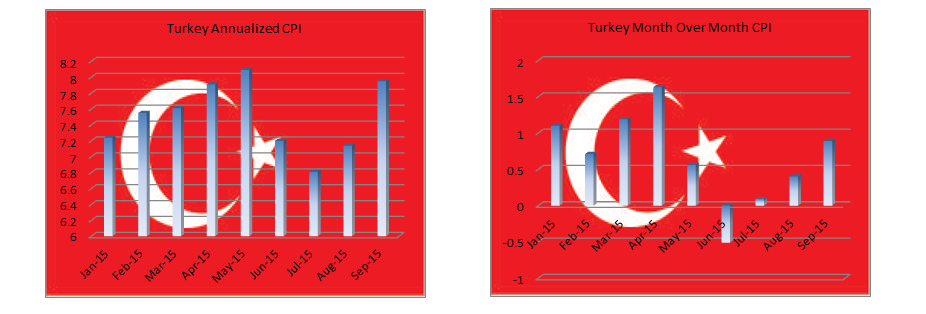In the past year, regulators across Europe have been anything but shy about clamping down on Forex brokerage’s modus operandi, from FCA’s lowering of leverage limits to CySEC’s prohibition of bonus offering. As a result, FX brokers have been having a hard time adapting to the new landscape and are therefore looking at countries in which they did not conduct business before, in hopes of finding growth opportunities to expand their revenue streams.
Turkey may have been at one point a country which offered such opportunities, however, it was only a matter of time before the candidate for European Union membership joined the clan of regulators who are becoming stricter and stricter when it comes to high-risk investments.
The first order of business, a restriction in the maximum leverage on forex trading from 100:1 to 10:1 by Turkey’s Capital Markets Board. The measure is designed to protect small investors from high Forex volatility, according to Board spokespeople. Many traders are dazzled by the high levels of leverage often available in FX investments due to the fact that it offers the potential to multiply winnings, however, these high leverage levels are equally enabling of deepened losses, and this is exactly what the Turkish regulator intends to prevent.
Furthermore, the CMB is now requiring investors to deposit a minimum of 50,000 lira (£11,000) when opening a Forex account. As opposed to other regulators, such as CySEC, which have added provisions to their stricter regulations to allow experienced traders access to higher leverage levels, the CMB has made no such exceptions.
The wave of stricter regulation from Turkey goes well beyond its borders. According to Deputy PM Nurettin Canikli, “There will be legislative efforts over the following days. If Turkish citizens visit — without permission — an internet site or domain abroad, which provides foreign exchange trading services, we will block access to those sites.”
Turkey’s behavior may very well be in line with the general financial trading landscape throughout Europe, however, it is less coherent with the Turkey’s Treasury and the Istanbul Finance Center project’s intention to pave the way to attract foreign investors into Turkey’s capital markets. According to reports, Istanbul has started to issue foreign exchange-based securities to foreign investors in order to become a globally recognized finance center. However this move may be short lived considering the referendum that handed full legislative powers into the hands of President Erdoğan on 16 April 2017.
Far from opening its doors in a neo -liberal fashion that would encourage business and commerce, Turkey appears to be on a path to become a closed off autocracy, that is taking a conservative attitude to protect and limit the financial activities of its citizens.
Get the 5 most predictable currency pairs
What’s going on in Turkey?
